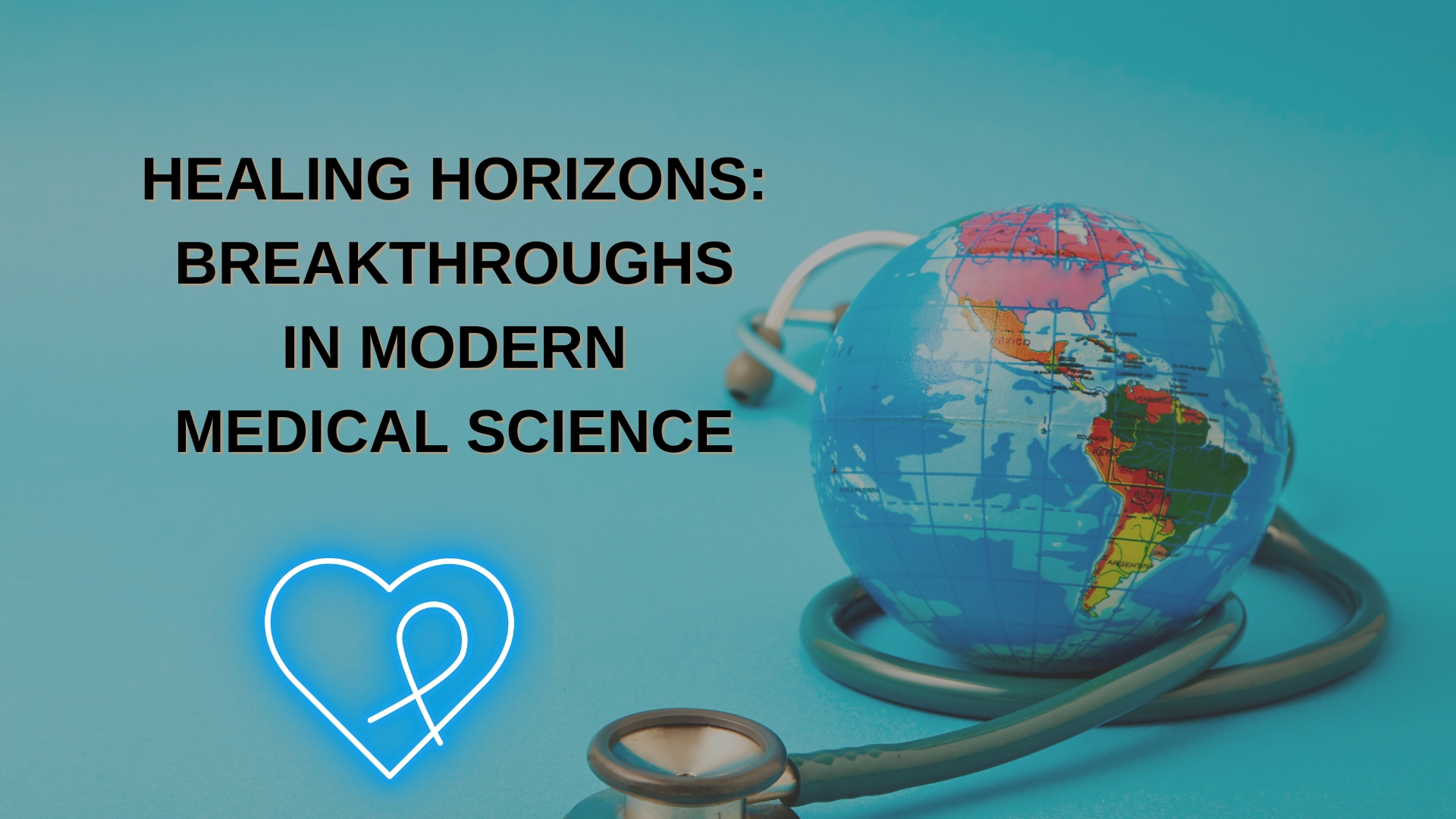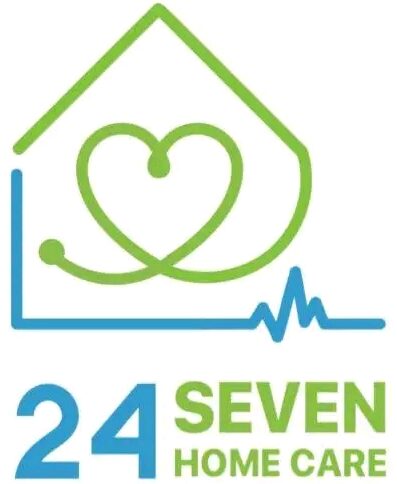Healing Horizons: Breakthroughs in Modern Medical Science
Introduction
Modern medical science has made remarkable progress in recent decades, leading to breakthroughs in the prevention, diagnosis, and treatment of diseases. These advances have had a profound impact on human health and well-being, extending life spans and improving the quality of life for millions of people around the world.

In this article, we will explore some of the key breakthroughs in modern medical science that have revolutionized the way we heal. We will discuss how these advances have led to new treatments for cancer, heart disease, infectious diseases, and other chronic conditions. We will also explore the potential of emerging technologies, such as gene editing and artificial intelligence, to further transform healthcare in the years to come.
Breakthroughs in Cancer Treatment
Cancer is one of the leading causes of death worldwide, but modern medical science has made significant progress in the fight against this disease. New treatments, such as targeted therapy and immunotherapy, are helping more people than ever before to survive and thrive with cancer.
Targeted therapy drugs are designed to attack specific molecules or pathways that are essential for cancer cell growth and survival. This approach is more precise and less toxic than traditional chemotherapy drugs, which can damage healthy cells as well as cancer cells.
Immunotherapy drugs help the body’s own immune system recognize and kill cancer cells. This approach has been particularly successful in treating certain types of blood cancer, such as leukemia and lymphoma.
Breakthroughs in Heart Disease Treatment
Heart disease is another leading cause of death worldwide, but modern medical science has made significant progress in preventing, diagnosing, and treating this condition.
New drugs and surgical techniques are helping to reduce the risk of heart attack and stroke and improve the quality of life for people with heart disease. For example, statin drugs are highly effective in lowering cholesterol levels and reducing the risk of heart disease. And stenting procedures can be used to open up blocked coronary arteries and improve blood flow to the heart.
Breakthroughs in Infectious Disease Treatment
Infectious diseases, such as malaria, tuberculosis, and HIV/AIDS, continue to be a major public health challenge in many parts of the world. However, modern medical science has made significant progress in developing new treatments for these diseases.
For example, artemisinin-based combination therapies (ACTs) are now the first-line treatment for malaria, and have been shown to reduce malaria deaths by up to 90%. New drugs are also available to treat tuberculosis and HIV/AIDS and have helped to extend the lives of millions of people.
Breakthroughs in the Treatment of Chronic Conditions
Chronic conditions, such as diabetes, arthritis, and asthma, affect millions of people around the world. Modern medical science has made significant progress in developing new treatments for these conditions that can help improve quality of life and extend lifespans.
For example, new diabetes medications can help control blood sugar levels and reduce the risk of complications from diabetes. New biologic drugs have also been developed to treat arthritis and asthma, and have been shown to be very effective in reducing pain and inflammation.
Emerging Technologies in Healthcare
In addition to the breakthroughs discussed above, a number of emerging technologies are poised to further transform healthcare in the years to come. These technologies include gene editing, artificial intelligence, and nanotechnology.
Gene editing technologies, such as CRISPR-Cas9, have the potential to revolutionize the treatment of genetic diseases. CRISPR-Cas9 can be used to correct genetic mutations that cause diseases such as cystic fibrosis and sickle cell anemia.
Artificial intelligence (AI) is already being used in healthcare to develop new diagnostic tools and treatments. For example, AI is being used to develop algorithms that can detect cancer cells in medical images more accurately than human doctors. AI is also being used to develop personalized treatment plans for cancer patients.
Nanotechnology is being used to develop new drug delivery systems that can target specific cells or tissues in the body. This could lead to more effective and less toxic treatments for cancer and other diseases.
Here are some specific examples of breakthroughs in modern medical science:
Cancer:The development of targeted therapy and immunotherapy drugs has revolutionized the treatment of cancer. Targeted therapy drugs are designed to attack specific molecules or pathways that are essential for cancer cell growth and survival. Immunotherapy drugs help the body’s own immune system to recognize and kill cancer cells.
More examples of breakthroughs in modern medical science:
Infectious diseases: The development of artemisinin-based combination therapies (ACTs) has revolutionized the treatment of malaria. ACTs are now the first-line treatment for malaria, and have been shown to reduce malaria deaths by up to 90%. New drugs are also available to treat tuberculosis and HIV/AIDS, and have helped to extend the lives of millions of people.
Chronic conditions: The development of new medications and biologic drugs has led to significant advances in the treatment of chronic conditions such as diabetes, arthritis, and asthma. These medications can help to improve quality of life and extend lifespans.
Genetic diseases: Gene editing technologies such as CRISPR-Cas9 have the potential to revolutionize the treatment of genetic diseases. CRISPR-Cas9 can be used to correct genetic mutations that cause diseases such as cystic fibrosis and sickle cell anemia.
Precision medicine: Precision medicine is a new approach to healthcare that takes into account individual genetic, environmental, and lifestyle factors to develop personalized treatment plans. Precision medicine has the potential to improve the effectiveness and safety of treatments for a variety of diseases.
Regenerative medicine: Regenerative medicine is a field of medicine that aims to repair or replace damaged tissues and organs. Stem cell therapy and tissue engineering are two promising areas of regenerative medicine. Stem cell therapy involves using stem cells to repair or replace damaged tissues. Tissue engineering involves using scaffolds, cells, and signaling molecules to create new tissues and organs.
Here are some more specific examples of breakthrough medical treatments and technologies:
CAR T-cell therapy:CAR T-cell therapy is a type of immunotherapy that involves engineering a patient’s own T cells to recognize and attack cancer cells. CAR T-cell therapy has been shown to be highly effective in treating certain types of blood cancer, such as leukemia and lymphoma.
Proton beam therapy: Proton beam therapy is a type of radiation therapy that uses protons instead of photons to target and destroy cancer cells. Proton beam therapy is more precise than traditional radiation therapy and can cause less damage to healthy tissues.
3D printing: 3D printing is being used to create custom prosthetics, implants, and surgical instruments. 3D printing is also being used to develop new drug delivery systems and to create new models of tissues and organs for research purposes.
Wearable devices: Wearable devices such as smart watches and fitness trackers are being used to monitor vital signs, track physical activity, and collect other health data. This data can be used to improve disease prevention and management.
These are just a few examples of the many breakthroughs that have been made in modern medical science. As research continues and new technologies develop, we can expect to see even more innovative and transformative advances in healthcare in the years to come.
Conclusion
Modern medical science has made remarkable progress in recent decades, leading to breakthroughs in the prevention, diagnosis, and treatment of diseases. These advances have had a profound impact on human health and well-being, extending lifespans and improving the quality of life for millions of people around the world.


